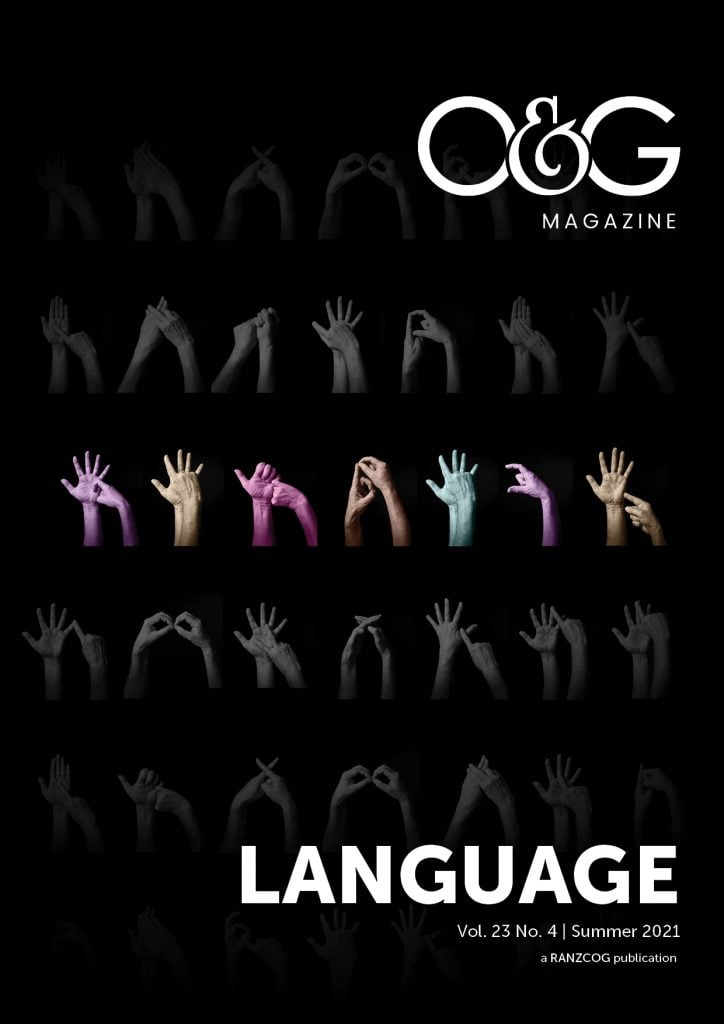‘Mairangi Mai! – Wake up tai Tokerau (Northland).’ Kuia (female elder) Merimeri Penfold exclaimed ‘our language and our marae are struggling’.1
At the beginning of the 1800s, te reo Māori was the predominant language of Aotearoa New Zealand. As English speakers arrived, te reo Māori speakers became less and less of the population. Actions that supressed Māori culture also supressed the valuing and understanding of the language. The evolving European education system in New Zealand soon turned its back on te reo Māori and took Māori children out of traditional Whare Wānanga (schools). Missionary schools and Native schools worked to educate Māori children in English and punished the use of te reo Māori.
As te reo Māori changed and faltered in Aotearoa with influence from English, a written version of the language arose and was used by both Māori and Europeans. One of the most prolific and harmful examples of te reo Māori being misunderstood was the two versions of te Tiriti o Waitangi/Treaty of Waitangi first signed in 1840. The mistranslation of many words, and therefore the different understandings of what was agreed, still has effects to present day.
By the mid-1900s, te reo Māori was in danger of being lost completely. Māori-driven initiatives, such as Kōhunga reo and Kura Kaupapa, helped lead the resurgence of te reo Māori in education.2 In 1987, te reo Māori was recognised as an official New Zealand language. Te reo Māori is now seen and heard in mainstream spaces, especially at all levels of education. Media, arts and many businesses have also started embracing and revitalising te reo Māori for everyday use.3 This supports not only the rebuilding of te reo Māori understanding, but also te Ao Māori (the Māori worldview) and Māoritanga (Māori culture).
Linguists have long recognised language and culture as interwoven. Languages represent philosophies and social structure;4 ‘to learn [speak] a different language is to encounter a different logic, a different cadence, a different sequence of words, it prepares you to think differently’.5
In the 2018 New Zealand Census, 73% of Māori adults said that using te reo Māori in daily life was of some importance, with over 30% saying it was very important.6 This importance was higher in wāhine Māori, showing the importance of te reo in obstetric and gynaecological medicine. Around half of Māori adults in this census could understand or speak words and phrases of te reo Māori. 89% of Māori adults also reported that it is important to be involved in things to do with Māori culture.
Communication is a key component in any society; as language develops, so too do unique cultural skills. This provides a sense of connection, ownership, and community. Like many indigenous languages, Te reo Māori and Māoritanga (Māori culture) are inseparably linked.
There have been many examples of health organisations recognising the importance of te reo Māori and Māoritanga to people’s health. Hāpai Te Hauora and the Mental Health Foundation previously launched a campaign around the protective factors of te reo Māori and wellbeing.7 8 9 Research has shown that confidence in te reo Māori and a connection to Māoritanga are linked to a lower risk of suicide indicators, such as isolation, in Māori youth.10
Cultural competence courses often aim to promote meaningful engagement with Māori patients, through appropriate language and interaction during a patient’s care. RANZCOG is fortunate to have a relationship with the University of Otago’s Māori/Indigenous Health Institute (MIHI). MIHI provides a cultural competence course for all RANZCOG trainees and Fellows. The course teaches the Meihana model and the Hui process which are teaching tools grounded in Te Ao Māori. They have been especially adapted for RANZCOG by the MIHI team, which includes RANZCOG Fellow Dr Angela Beard. Participants have reported being easily able to apply these models within their clinical practice. The goal of the tools is to translate cultural competency principles into an approach that clinicians can use to improve their responsiveness to Māori clients and their whānau within existing clinical practices.
Learning to pronounce Māori words correctly is another way to connect with patients and shows respect for the language and the people.11 This is a great place to start as a clinician, along with a simple greeting such as ‘kia ora’.
MIHI, alongside Te Tumu of Otago University, have developed an app that supports learning te reo Māori that is relevant to the health sector.12 Aki Hauora is an interactive app that teaches commonly used phrases as well as interactive games to be used with patients. MIHI believe that the use of te reo Māori in consultation provides the opportunity for deeper connection with patients and a greater understanding of their cultural needs. The app is also used throughout the Otago University Medical school with students to support their te reo Māori learning as they train.
Te Pou have also created a glossary ‘Te Reo Hāpai’ that includes new words in te reo for the mental health, addictions, and disability sectors.13 Te Pou used information gathered from engagement with Māori to create a useful tool to support health professionals to embrace te reo Māori in their everyday practice.
It is important to acknowledge that everyone is on a journey with language, and that an openness to making mistakes and learning from them is vital. Much has been written around the importance of actively listening to people who have names you do not know how to pronounce, and the important step of simply asking how to pronounce their name.14 15 16 Te reo Māori has regularly occurring sounds and spellings that may be daunting when first heard or read. Practicing these, and actively seeking chances to hear these sounds being said, can be a great way to build confidence for when you want to use them. And you can always clarify again if you are unsure.
Health professionals have varying levels of te reo skills and vocabulary. Being patient-led on when and how to best incorporate te reo Māori into conversations is a respectful and culturally safe practice and ensures there is an understanding of what the patient is comfortable with.
Even the small can make a big impact on the big
Te reo pronunciation resources
- The Māori Language Commission
- The Ministry of Education
- Māori dictionary includes recordings of how to pronounce words in te reo
- A great YouTube video featuring Waka Huia and Jennifer Ward-Lealand and her journey learning te reo Māori
Health professional te reo resources
- MIHI cultural competence course (RANZCOG members only): The course involves online learning, as well as a face-to-face hui, and assessment modules. If you are interested in enrolling in this course, or have further questions please get in touch with [email protected]
- Most DHBs offer a te reo Māori course, or access to te reo Māori courses run through local wananga
- Te Reo Hāpai – A glossary of existing and new te reo Māori terms for use in the health, mental health, addiction, and disability sectors
- Aki Hauora app – University of Otago developed app with tools to help health professionals and students learn or become more familiar with Māori language used in healthcare
Related reading
- Tukua tō reo kia rere (People of the Land issue, Autumn 2023)
Our feature articles represent the views of our authors and do not necessarily represent the views of the Royal Australian and New Zealand College of Obstetricians and Gynaecologists (RANZCOG), who publish O&G Magazine. While we make every effort to ensure that the information we share is accurate, we welcome any comments, suggestions or correction of errors in our comments section below, or by emailing the editor at [email protected].
References
- Marangi Mai! Te Reo and Marae in crisis? Edited by Merata Kawharu. Published Sept 2014, paperback
- Calman R. Māori education – mātauranga. Kaupapa Māori education. Te Ara: the Encyclopaedia of New Zealand. Available from: www.TeAra.govt.nz/en/maori-education-matauranga/page-5.
- Te Puni Kōkiri. The Crown’s Strategy for Māori Language Revitalisation 2019–2023. Available from: tpk.govt.nz/en/o-matou-mohiotanga/te-reo-maori/crowns-strategy-for-maori-language-revitalisation.
- Wiremu Matthews. ‘Cutural Awareness for the workplace’ provided by Kānuka Wellbeing and Leadership Ltd.
- Martina Navratilova. ‘How Languages Changed My Life’ ISBN9781480884564, p173.
- Stats NZ. Te Kupenga: 2018. 2020. Available from: www.stats.govt.nz/information-releases/te-kupenga-2018-final-english.
- Graham S. The relationship between Māori cultural identity loss & rangatahi Māori suicide (Thesis, Master of Health, Sport and Human Performance (MHSHP). The University of Waikato, Hamilton, New Zealand. 2021. Available from: researchcommons.waikato.ac.nz/handle/10289/14511.
- Mental Health Foundation of New Zealand. Honouring Te Reo Māori could save lives. 2018. Available from: mentalhealth.org.nz/news/post/honouring-te-reo-maori-could-save-lives.
- Pitama SG, Bennett ST, Waitoki W, et al. A proposed hauora Māori clinical guide for psychologists: Using the hui process and meihana model in clinical assessment and formulation. New Zealand Journal of Psychology. 2017;46(3), 7–19.
- Perceived Health Benefits from a Commitment to Speak te reo Māori in the Home: Four Women’s Perspectives. journalindigenouswellbeing.co.nz/wp-content/uploads/2012/07/05CampbellNew.pdf.
- Russell L. Te Oranga Hinengaro: Report on Māori Mental Wellbeing Results from the New Zealand Mental Health Monitor & Health and Lifestyles Survey. Wellington: Health Promotion Agency/Te Hiringa Hauora. 2018.
- University of Otago. New App helps health professionals learn medical terms in Te Reo. 2017. Available from: otago.ac.nz/christchurch/departments/mihi/news/new-app-helps-health-professionals-learn-medical-terms-in-te-reo.
- University of Otago. New App helps health professionals learn medical terms in Te Reo. 2017.www.otago.ac.nz/news/news/otago635065.html.
- Te Pou. Te Reo Hāpai – The Language of Enrichment. Available from: www.tepou.co.nz/initiatives/te-reo-h%C4%81pai-the-language-of-enrichment#:~:text=Te%20Reo%20H%C4%81pai%20is%20about,Pae%C4%81rahi%20Strategic%20Lead%20Keri%20Opai.
- Pitama S. The value of te reo in primary care. Journal of Primary Health Care. 3(2):123-127. MIHI, University of Otago. 2011. Available from: https://pdfs.semanticscholar.org/f8c7/6e776b9362483337a9805e30fbba290daa4a.pdf.
- Tulshyan R. If You Don’t Know How to Say Someone’s Name, Just Ask. Harvard Business Review. 2020. Available from: hbr.org/2020/01/if-you-dont-know-how-to-say-someones-name-just-ask.






Leave a Reply